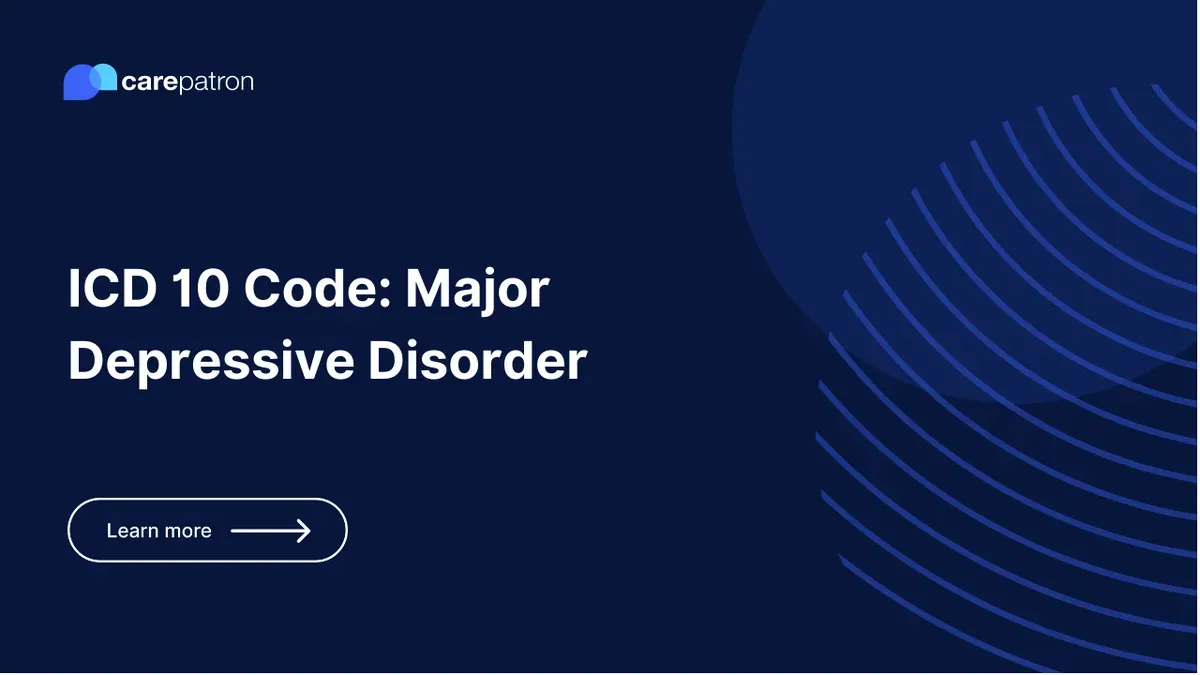
Major Depressive Disorder ICD-10-CM Codes | 2023
Get the essential ICD-10-CM codes for Major Depressive Disorder, including clinical info, billable codes, synonyms, and FAQs. Navigate your coding with ease!
Use Code
EHR and practice management software
Get started for free
*No credit card required
Free
$0/usd
Unlimited clients
Telehealth
1GB of storage
Client portal text
Automated billing and online payments
